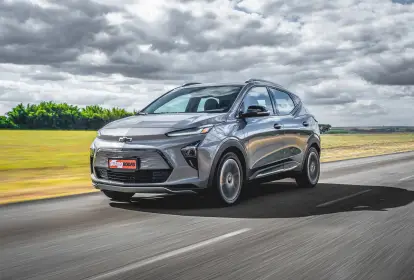In 2023, fuel prices are skyrocketing, prompting car buyers to rethink their choices and consider alternatives to traditional gas-powered vehicles. According to Bloomberg Green, global fuel costs have risen by over 30% since last year. As consumers search for more economical solutions, the debate between electric vehicles (EVs), hybrids, and gas cars intensifies. This article will explore which option is best suited for navigating the financial challenges posed by rising fuel costs. We’ll delve into the pros and cons of each vehicle type, offering a comprehensive comparison to help you make an informed decision.
Understanding the Options: EVs, Hybrids, and Gas Cars
Electric Vehicles (EVs): The Future of Mobility
Electric vehicles are rapidly gaining traction as a sustainable alternative to gas-powered cars. With brands like Tesla, Rivian, and BYD leading the charge, EVs are becoming increasingly popular. According to InsideEVs, EV sales in 2023 have increased by 50% year-over-year, demonstrating their growing appeal.
- Advantages:
- Zero Emissions: EVs produce no tailpipe emissions, making them environmentally friendly.
- Lower Operating Costs: Charging an EV is typically cheaper than refueling a gas car. The International Energy Agency (IEA) reports that EV owners can save up to 60% on fuel costs annually.
- Government Incentives: Many countries offer tax rebates and incentives for EV purchases.
-
Challenges:
- Charging Infrastructure: Although expanding, charging networks can still be sparse in rural areas.
- Initial Costs: EVs can be more expensive upfront, though prices are gradually decreasing.
Hybrid Cars: A Middle Ground
Hybrids offer a balanced approach, combining a gasoline engine with an electric motor. Popular models from Toyota and Ford provide versatility and improved fuel efficiency.
- Advantages:
- Fuel Efficiency: Hybrids generally consume less fuel than traditional gas cars, reducing fuel expenses.
- Extended Range: Unlike pure EVs, hybrids do not rely solely on electric charging, offering longer travel distances without frequent stops.
- Lower Emissions: While not zero-emission, hybrids emit less pollution than gas cars.
-
Challenges:
- Complex Maintenance: The dual-engine system can lead to higher maintenance costs.
- Moderate Cost Savings: While more efficient, hybrids don’t offer the same cost savings on fuel as EVs.
Gas-Powered Cars: The Conventional Choice
Despite the shift towards sustainable options, gas cars remain a dominant force in the market. Known for their reliability and widespread availability, they continue to be a preferred choice for many.
- Advantages:
- Extensive Infrastructure: Gas stations are ubiquitous, providing convenience for long-distance travel.
- Lower Initial Cost: Generally, gas cars are cheaper to purchase than their electric counterparts.
- Proven Technology: With years of development, gas engines are reliable and well-understood.
-
Challenges:
- Environmental Impact: Gas cars are significant contributors to greenhouse gas emissions.
- Rising Fuel Costs: As fuel prices increase, the cost of ownership for gas cars continues to rise.
Practical Comparisons: What to Consider
Cost Analysis: Fuel and Maintenance
-
EVs: Expect to save significantly on fuel and maintenance. According to Reuters Mobility, EV maintenance costs are 20% lower than gas vehicles.
-
Hybrids: Offer moderate savings, with a balance between fuel efficiency and the need for regular gas fill-ups.
-
Gas Cars: Subject to fluctuating fuel prices, leading to potentially higher long-term costs.
Charging and Refueling: Convenience vs. Infrastructure
-
EVs: Charging stations are expanding, with companies like Tesla investing in Supercharger networks. However, home charging is ideal for daily use.
-
Hybrids: Benefit from both electric charging and gas stations, offering flexibility.
-
Gas Cars: Easily refueled anywhere, but with a rising cost per gallon.
Environmental Impact: Sustainability Matters
-
EVs: Lead the way in reducing carbon footprints, aligning with global climate goals.
-
Hybrids: Offer a compromise, with reduced emissions compared to gas cars.
-
Gas Cars: Contribute significantly to emissions, lessening their appeal in an eco-conscious world.
Recommendations for 2023 Buyers
When deciding between EVs, hybrids, and gas cars in 2023, consider the following:
- Evaluate Your Driving Habits: If you drive long distances regularly, a hybrid or gas car may suit your needs better. For urban commuting, an EV could offer substantial savings.
-
Consider Infrastructure: Assess the availability of charging stations or gas stations in your area.
-
Factor in Environmental Goals: If sustainability is a priority, an EV or hybrid aligns better with eco-friendly objectives.
Where to Buy
- EVs: Tesla, Rivian, and Lucid Motors offer direct sales, while traditional dealerships like Volkswagen and Hyundai also feature EV models.
- Hybrids: Available at most major car dealerships, with popular models from Toyota and Ford.
- Gas Cars: Widely available, with numerous brands and models to choose from.
Conclusion: Making the Right Choice
As fuel costs continue to rise in 2023, the decision between EVs, hybrids, and gas cars depends on personal priorities and lifestyle. While gas cars offer lower initial costs, EVs promise long-term savings and environmental benefits. Hybrids provide a balanced alternative for those seeking efficiency without full commitment to electric. Consider your driving habits, environmental impact, and budget to choose the best option for you. With technology advancing rapidly, the future of transportation is electric, and investing in an EV today could save you money tomorrow. What will you choose in the face of rising fuel costs? Share your thoughts and join the conversation about the future of mobility.

